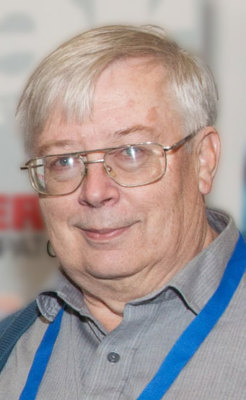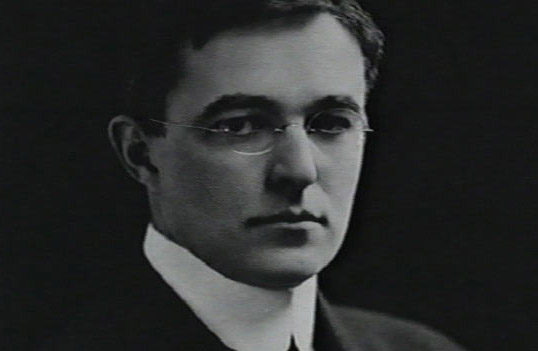E.T. Hone Home
October 22, 2024


 [starbox]
I am a big fan of team players — the guys and gals who put forth that extra something that pushes a good team to greatness. Some have been co-workers of mine, and you’d only hear about their achievements at their retirement party. The modern world rewards self-promoters; we have people “blowing up the Internet” who have no other marketable skills than their willingness to do things in public that normal people only do in private.
Engineers live in a world where facts and science rule. We like orderly development but admire the occasional “big breakthrough” — especially if it comes with a great story. These “eureka” moments aren’t common, but we remember them for the change in direction they cause in our otherwise plodding efforts. The very expression “eureka” will bring to mind Archimedes’ discovery of the displacement method of verifying the purity of gold.
Thanks to an old issue of World War II magazine (Nov/Dec 2010), I now have a “eureka” story to attach to that favorite weapon of infantrymen, i.e. — the bazooka. The U.S. Army had been researching anti-tank weapons since the end of WW I, but it took a young officer walking by the scrap pile at the research center to solve the problem. A five-foot-long piece of tubing caught his eye; its inside diameter happened to match the outside diameter of the projectiles they were making. It was just long enough to allow for a 1-fiftieth-of-a-second burn while keeping the flame away from the shooter.
A month later the brass was touring the Aberdeen Proving Ground in Maryland and heard the research team firing the weapon. The project manager impulsively let the general fire it himself. He hit the target on his first attempt and ordered the weapon into production that very day. General Electric was given 30 days to build 5,000 launchers and completed the order with 89 hours to spare. By the end of the war (3 years later) 440,000 had reached the field. The name Bazooka was attached to it by GIs who remembered a joke musical instrument on comedian Bob Burns’ radio shows.
Edward Uhl, the young army officer, went on to become chairman of Fairchild Industries, the giant defense contractor. He would later comment: “We have gotten into the bad habit of heaping people onto projects. The trap we’ve fallen into is to believe that a thousand incompetents — properly organized — can do the job of a few dozen outstanding people.” I completely agree.
[starbox]
I am a big fan of team players — the guys and gals who put forth that extra something that pushes a good team to greatness. Some have been co-workers of mine, and you’d only hear about their achievements at their retirement party. The modern world rewards self-promoters; we have people “blowing up the Internet” who have no other marketable skills than their willingness to do things in public that normal people only do in private.
Engineers live in a world where facts and science rule. We like orderly development but admire the occasional “big breakthrough” — especially if it comes with a great story. These “eureka” moments aren’t common, but we remember them for the change in direction they cause in our otherwise plodding efforts. The very expression “eureka” will bring to mind Archimedes’ discovery of the displacement method of verifying the purity of gold.
Thanks to an old issue of World War II magazine (Nov/Dec 2010), I now have a “eureka” story to attach to that favorite weapon of infantrymen, i.e. — the bazooka. The U.S. Army had been researching anti-tank weapons since the end of WW I, but it took a young officer walking by the scrap pile at the research center to solve the problem. A five-foot-long piece of tubing caught his eye; its inside diameter happened to match the outside diameter of the projectiles they were making. It was just long enough to allow for a 1-fiftieth-of-a-second burn while keeping the flame away from the shooter.
A month later the brass was touring the Aberdeen Proving Ground in Maryland and heard the research team firing the weapon. The project manager impulsively let the general fire it himself. He hit the target on his first attempt and ordered the weapon into production that very day. General Electric was given 30 days to build 5,000 launchers and completed the order with 89 hours to spare. By the end of the war (3 years later) 440,000 had reached the field. The name Bazooka was attached to it by GIs who remembered a joke musical instrument on comedian Bob Burns’ radio shows.
Edward Uhl, the young army officer, went on to become chairman of Fairchild Industries, the giant defense contractor. He would later comment: “We have gotten into the bad habit of heaping people onto projects. The trap we’ve fallen into is to believe that a thousand incompetents — properly organized — can do the job of a few dozen outstanding people.” I completely agree.